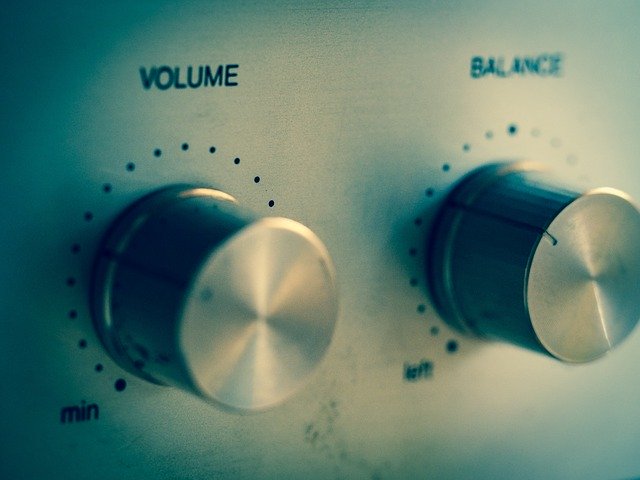
control issues: what’s 1 thing completely in my power?
Irrespective of our political leanings, many (most? all?) of us seem to be feeling our world has spun out of control.
As I’ve written about recently, it is stunning to realize that the pandemic can be viewed as one of possibility—of many, many possibilities actually.
If we are wise and proactive, we have the chance to respond to it by redesigning a lot of our failing systems to serve everyone: economic, education, healthcare, labor; if we are reactive and look for the silver bullets and sparkly bandaids, things will only get worse as the lockdown ends.
And wow, that feels heavy.
If you are an empath, or even a relatively sensitive individual, you may well be feeling completely overwhelmed about what can be done in our country at the moment.
And if you’re a woman who has taken on new roles such as home-school teacher, school nurse, cafeteria lady, and phys ed instructor in addition to working from home full time, you’re probably feeling that even the home front—possibly just passing as being well-ordered before—has now spun completely out of control. (Remember my comments about mental load? Bad news on that front, girls.)
I’ve heard so many people talking about feeling out of control that I can’t help but replay John Malkovich’s devastating scene in Dangerous Liaisons in my head.
lockdown marathons
My lockdown began with a Jane Austen marathon, which I finished last week. I’m not sure what that was all about, but I felt compelled to reread most of her books and watch every movie and miniseries based on them that I could find. (For me, the jury is still out in the Matthew Macfadyen vs. Colin Firth debate, so I, too, will say “Both, please.”)
Austen may well be the Queen of Snark, and her sense of humor really tickles me, so perhaps I was looking for some lightness?
My son and I also found the time to watch the extended versions of The Hobbit and The Lord of the Rings. Yup, all 6.5 hours of them at the rate of 1 disc a night. And no, we didn’t even fast forward through the scenes where we just want to slap Frodo and tell him to stop whining. Because, really, we all know Sam Gamgee is the real hero.
(At the risk of digressing entirely, did I ever mention Sean Astin left me a voicemail once? Yeah, yeah—he was getting out the vote for a friend of his during an election, and still it gave me some small leverage over my kids for a very brief moment.)
LOTR is full of great moments and lines, and perhaps because I was watching it during the pandemic, what really struck me is the number of times that the hobbits’ size is mentioned. Of course, I know that this is one of the biggest points of the story—that the smallest of us can change the course of history (real or imagined)—but that point has usually been secondary to my enjoyment of other themes in the movies.
And when those two marathons ended, I found myself turning to the writing of Eckhart Tolle.
control: it’s an illusion
In both The Power of Now and A New Earth, Tolle writes extensively about staying in the present moment.
All stress indicates an inability to do so: the past cannot be changed, the future cannot be predicted, and yet we spend so much of our time regretting what’s done and worrying about what’s to come.
Think about how many time a day you think, “If only I’d…” and “What if…?”
And a lot of what feels like angst in the present is really our dismay that we were not able to control how it looks by having foresight and taking action in the past—the present is the past’s future, after all, and we really thought we had it sorted this time!
We also tend to spend a lot of our energy trying to change others because, obviously, we know what’s best for them. <sarcast font>
So if we can’t control what happens and we can’t control others, what is within our control?
(Ugh—I really dislike the word “control” to begin with—sort of like the word “management” when used in “time management.” It feels negative and restrictive, tight and contracted. Still looking for other options, so feel free to suggest alternatives in the comments!)
Ultimately, the only thing we have dominion over is ourselves—not just what we think, say and do but how we respond to others, whether the other is a person, a place, a situation, an event.
Where does that leave us?
don’t follow the comments
(Yes, Precious, you’re right. That’s another poorly disguised LOTR reference.)
Despite numerous quibbles I have with this opinion piece by Courtland Milloy on the virus, I think Houston cardiologist Baxter Montgomery makes a very important point in it: when it comes to something as mundane yet important as our diet, we have a choice at every moment.
Told that some people may not be buying fruits and vegetables because of rising costs, Montgomery suggested the next best option: cutting back on sugar, salt and processed foods. “It costs nothing not to go to a fast-food joint,” he said. “I never heard of anybody being charged for not ordering a cheeseburger and fries.”
I try not to read comments online (except those on my own blog, of course!) because they just raise my blood pressure, and because I have some quibbles with the piece, I did read the comments on Milloy’s piece. Surprise! They were no different.
And yet I think that many people identified one of the issues I have with this piece: there are ways to save money on food—and sometimes, you’ll even get higher-quality, more nutritious food in the process.
One person commented that jalapeños were $3.97 for 4, another than avocados were $2 apiece. Um. News flash: when we close our borders, we are for all intents and purposes asking for higher prices on imported foods.
I eat jalapeños often and love avocados but try not to eat them often because of ethical and environmental issues—and so my question to these two commenters would be, when did jalapeños and avocados become “need to haves” rather than “nice to haves?”
If these foods are part of your cultural heritage, you probably already know to shop in the small independent “Mom + Pop” stores where they are more affordable. If they’re not, then perhaps it’s time to rethink your food choices, shop for what is less expensive, and learn how to cook and enjoy those foods.
And yes, kale pusher that I am, I did get a good laugh about the kale-bashing thread running throughout the comments.
make the connection
Feeling out of control is uncomfortable for most of us. We have a deep discomfort with ambiguity and uncertainty.
And major crises like the pandemic always serve as a reminder that we are not in control of anything but our own decisions, actions, and responses, so why not start where we are and do what we can with what we have?
Many of my clients suffer from a case of “all or nothing” thinking. When there’s so much to deal with, so much to face, so much to change, it’s overwhelming. It’s easier to do nothing and complain than to take action.
Our food choices are within our control, and those food choices, as Milloy points out, can really make a difference in our health and our immunity.
The good news: any action you take on behalf of your health is a step in the right direction, even if it’s a teeny, tiny baby step.
It could be choosing to buy frozen vegetables in place of fresh if the fresh are too expensive—I’d even rather you ate canned vegetables (low-sodium, of course!) than fast food. Meat now out of your price range? There are lots of great recipes using dried beans.
It’s like turning a control knob just one notch right or left and recognizing you’ve made a difference.
Start by getting healthy yourself—and you may just find you have the bandwidth to help others, whether they are individuals, communities, nations, or the world. Just don’t take on too much too soon. Note I didn’t say, “make others conform to your plans,” because as we know, that’s beyond our control.
Looking for some tips on stretching your food dollar? You can read more about that in the introduction to my cookbook, which you can download for free. And drop me a note in the comments and let me know, what’s been your experience with food prices recently, and how have you adjusted your buying habits as a result?



